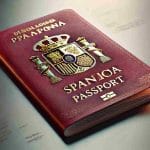Digital nomad visas have gained immense popularity among remote workers seeking flexibility and adventure. These specialized visa programs allow individuals to live and work legally in foreign countries while maintaining their remote careers.
Understanding the specific requirements for different countries’ visa programs is crucial for a successful application. Each country has its own set of criteria, which can vary significantly. Familiarizing yourself with these requirements can help streamline the process and avoid potential setbacks.
In this guide, we will explore the key requirements for digital nomad visas in various countries, including:
- Spain: Spain’s Digital Nomad Scheme offers a unique opportunity for remote workers seeking a new adventure.
- Italy
- Portugal
Additionally, we will provide insights into the application process and tax implications for remote workers. This comprehensive overview aims to equip you with the knowledge necessary to navigate the complexities of obtaining a digital nomad visa efficiently.
What is a Digital Nomad Visa?
A digital nomad visa is a specialized visa designed for remote workers who wish to live and work legally in a foreign country. Unlike traditional work visas, which typically require a job offer from a local employer, digital nomad visas allow individuals to maintain their employment with clients or companies based outside the host nation. This flexibility caters specifically to the needs of professionals who leverage technology to perform their jobs from anywhere in the world.
Purpose of the Digital Nomad Visa
The primary purpose of a digital nomad visa is to attract skilled workers who contribute positively to the local economy without taking jobs away from local citizens. Countries that offer this type of visa promote their cultural and economic landscapes while allowing remote workers to enjoy an enriching lifestyle abroad.
Benefits of Holding a Digital Nomad Visa
Obtaining a digital nomad visa provides numerous advantages:
- Legal Residency: Allows individuals to live in the chosen country without fear of legal repercussions.
- Flexibility: Offers the freedom to work remotely while experiencing new cultures and environments.
- Community: Connects individuals with like-minded professionals, creating networks and support systems.
- Tax Benefits: Some countries provide favorable tax regulations for digital nomads, further enhancing their financial situation.
The digital nomad application process emphasizes documentation that proves employment status and income stability. Applicants often need to demonstrate they can support themselves financially without seeking local employment. Countries offering digital nomad visas have become increasingly popular as they recognize the value remote workers bring to their economies.
As remote work continues to evolve, understanding the nuances of each country’s requirements becomes essential for aspiring digital nomads. For instance, if you’re considering Spain as your next destination, it would be beneficial to consult a Spain digital nomad lawyer who can guide you through the specific requirements and application process for obtaining a Spain Digital Nomad Visa.
Key Requirements for Digital Nomad Visas in Different Countries
1. Spain
Spain offers a unique opportunity for digital nomads through its Non-Lucrative Visa. This visa allows individuals to live and work remotely in Spain without engaging in local employment. Understanding the specific requirements is essential for a smooth application process.
Key Requirements:
- Proof of Sufficient Financial Means: Applicants must demonstrate that they have enough financial resources to support themselves during their stay in Spain without local employment. Generally, this means providing bank statements showing a stable income or sufficient savings.
- Income Stability: The financial proof should reflect a steady income stream, typically equating to at least 400% of the Spanish Public Income Index (IPREM) monthly. As of 2023, this amount is approximately €2,200 per month. Additional funds may be required for dependents.
- Health Insurance Coverage: Comprehensive health insurance is mandatory. It must provide coverage equivalent to the public health system in Spain and should not exclude any pre-existing conditions. This ensures that visa holders have access to medical care during their stay.
- Valid Passport: A passport with at least one year left before expiration is necessary. Ensure the passport has blank pages for visa stamps.
- Criminal Background Check: A clean criminal record from your home country is required. This document should be recent and certified accordingly.
- Medical Certificate: Some applicants might need to present a medical certificate confirming they do not carry any contagious diseases.
- Visa Application Form: Completing the visa application accurately is crucial. This includes all personal information and supporting documents as required by the Spanish consulate or embassy.
The Non-Lucrative Visa aims to attract financially independent individuals who can contribute to the local economy without taking jobs from residents. Understanding these requirements will facilitate a smoother transition into life as a digital nomad in Spain, allowing you to focus on enjoying your new environment while working remotely.
2. Portugal
Portugal’s D7 Visa program is gaining traction among digital nomads, especially retirees and those with passive income sources. This visa allows individuals to reside in Portugal while maintaining their remote work lifestyle. Key requirements for the D7 Visa include:
- Proof of Employment: Applicants must demonstrate stable income from abroad. This could be through employment contracts or proof of self-employment.
- Income Stability: A minimum monthly income is required, which should be above the Portuguese minimum wage. This ensures that applicants can support themselves without local employment.
- Health Insurance Coverage: Comprehensive health insurance that covers medical needs during the stay in Portugal is essential.
These criteria align with common requirements seen in various countries’ digital nomad visa programs, emphasizing financial independence and health security. The D7 Visa not only offers a pathway for living in Portugal but also provides an opportunity for individuals to enjoy a high quality of life in a welcoming environment. The appeal lies in its flexibility, allowing holders to engage in remote work while enjoying Portugal’s rich culture and stunning landscapes.
2. Italy
Italy offers a Freelance Visa tailored for digital nomads seeking to work remotely while enjoying the country’s rich culture and lifestyle. Understanding the requirements for this visa is crucial for successful applications.
Key eligibility criteria include:
- Proof of Employment: Applicants must demonstrate that they have a stable income source from clients outside Italy. This evidence can include contracts or invoices from international clients.
- Income Stability: A minimum income threshold must be met to ensure financial self-sufficiency during the stay. The specific amount may vary, but it typically aligns with living costs in Italy.
- Health Insurance Coverage: Applicants are required to have comprehensive health insurance that covers medical expenses while residing in Italy.
- No Local Employment: The Freelance Visa prohibits applicants from engaging in local employment, reinforcing its purpose for remote work only.
These general requirements align with the broader landscape of digital nomad visa requirements across various countries, emphasizing proof of income and health coverage as common factors. By meeting these criteria, digital nomads can enjoy the flexibility and vibrancy Italy has to offer while maintaining their professional commitments.
4. Malta
Malta has become a popular choice for digital nomads because of its special visa program designed for remote workers. The country understands the advantages of bringing in a global workforce and has set up requirements that are simple and flexible.
Key requirements for Malta’s digital nomad visa include:
- Proof of Employment: Applicants must show that they are employed by a company based outside of Malta or provide evidence of self-employment in a business operating outside the country.
- Income Stability: A minimum income level must be met to ensure that applicants can support themselves while living in Malta. This requirement highlights the significance of financial independence.
- Health Insurance Coverage: Comprehensive health insurance is mandatory, covering medical expenses during the stay in Malta. This protects both the individual and the healthcare system.
These requirements are similar to those found in other countries’ digital nomad visa programs, such as Spain and Italy. By setting clear guidelines, Malta not only creates a friendly atmosphere for remote workers but also promotes stability and security within its economy. This approach shows an innovative plan to embrace the future of work, attracting talent while upholding regulatory integrity.
5. Greece
Greece is becoming popular as a digital nomad destination with its stunning landscapes and lively culture. To obtain a digital nomad visa in Greece, you typically need to meet the following requirements:
- Proof of Employment: You must show that you work for a company outside of Greece or are self-employed with clients in other countries.
- Income Stability: You need to meet a minimum monthly income requirement to ensure you can support yourself financially during your stay.
- Health Insurance Coverage: It’s important to have valid health insurance that covers the entire duration of your stay in Greece.
In addition to Greece, Mexico’s Temporary Resident Visa is another viable option for those seeking long-term stays internationally.
The Application Process: From Gathering Documents to Paying Fees
Applying for a digital nomad visa can seem daunting. Understanding the steps involved, including documentation and fees, simplifies the process. Below is a step-by-step guide to help you navigate this journey smoothly.
Step 1: Research Visa Requirements
Begin by identifying which country you wish to apply for the digital nomad visa. Each country has specific visa requirements. Here are some helpful resources:
- Official government websites
- Local embassies or consulates
- Reputable legal advice services such as NIM Immigration Lawyers
Step 2: Gather Necessary Documents
Most countries require similar documentation for digital nomad visa applications. Essential documents typically include:
- Valid Passport: Ensure your passport is valid for at least six months beyond your intended stay.
- Proof of Employment: This can be a letter from your employer or freelance contracts showing that you work remotely.
- Financial Statements: Bank statements or pay stubs demonstrating sufficient financial means to support yourself without local employment.
- Health Insurance: Valid international health insurance covering your entire stay.
- Application Form: Complete the specific application form for the visa type you are applying for.
Step 3: Fill Out the Application Form
Accuracy is crucial when filling out application forms. Follow these tips:
- Use clear and straightforward language.
- Double-check all information for errors.
- If applying online, ensure that all required fields are filled before submitting.
Step 4: Submit Your Application
After gathering all necessary documents and completing your application form, submit it to the appropriate authority:
- Most countries allow applications through their embassies or consulates.
- Some countries offer online applications; check the official website for instructions.
Step 5: Pay Required Fees
Each visa application incurs fees that vary by country. Be prepared to pay these fees via:
- Credit card
- Bank transfer
- Payment at the embassy or consulate
Keep receipts of any payments made as proof of transaction.
Potential Challenges and Solutions
While applying for a digital nomad visa can be straightforward, applicants may face challenges along the way. Here are common issues and solutions based on real-life experiences from successful digital nomads:
- Document Verification Issues Challenge: Authorities may request additional documents or clarification.
- Solution: Maintain open communication with the embassy or consulate and provide requested information promptly.
- Lengthy Processing Times Challenge: Visa processing can take longer than expected.
- Solution: Apply well in advance of your travel plans and check estimated processing times on official websites.
- Language Barriers Challenge: Understanding application requirements in a foreign language may lead to confusion.
- Solution: Use translation services or seek assistance from professionals familiar with both languages.
- Rejection of Applications Challenge: Applications may be denied due to incomplete information or failure to meet specific requirements.
- Solution: Review rejection reasons thoroughly, consult with immigration experts if needed, and ensure all criteria are met before reapplying.
The application process for a digital nomad visa requires careful planning and attention to detail. By following these steps, applicants can enhance their chances of successfully obtaining their desired visa. For personalized assistance with complex cases or questions about specific requirements, consider reaching out to experienced immigration lawyers like those at NIM Immigration Lawyers Spain. Their expertise ensures clarity throughout every step of this journey, allowing you to focus on what matters most—embracing a life of remote work in exciting new destinations.












